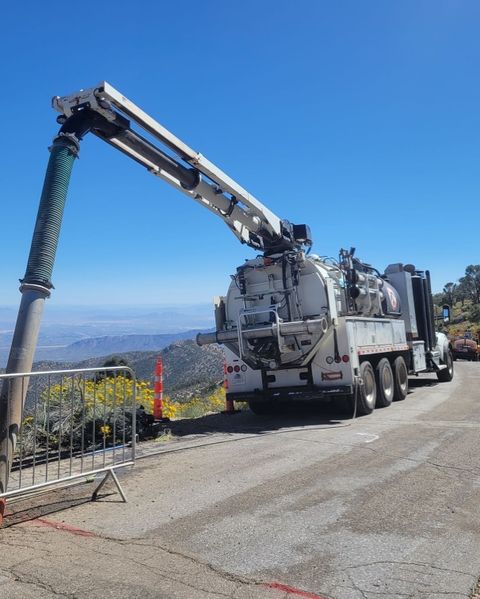Industries That Use Hydro Excavation
It's just about everyone.
Posted 22:55 September 24, 2023
Last Updated 22:55 September 24, 2023
 Hydro excavation, also known as hydrovac excavation or vacuum excavation, is a versatile and efficient method of excavation that finds applications in various industries. Here are some of the different industries that use hydro excavation:
Hydro excavation, also known as hydrovac excavation or vacuum excavation, is a versatile and efficient method of excavation that finds applications in various industries. Here are some of the different industries that use hydro excavation:
Construction: Hydro excavation is commonly used in construction projects to excavate trenches for utilities, foundations, and footings. It helps ensure the safety of existing underground utilities.
Utility Services: Utility companies, including water, gas, electricity, and telecommunications providers, use hydro excavation to locate and repair underground lines, install new infrastructure, and perform routine maintenance without damaging existing utilities.
Municipal and Government: Municipalities and government agencies employ hydro excavation for tasks such as sewer and water line repairs, streetlight installation, tree planting, and maintenance of city infrastructure.
Oil and Gas: The oil and gas industry relies on hydro excavation for pipeline installation, maintenance, and repair work, especially in sensitive or remote areas.
Environmental Remediation: Hydro excavation is used in environmental cleanup efforts, such as the removal of contaminated soil or underground storage tank excavation.
Telecommunications: Telecommunications companies use hydro excavation for trenching and installing fiber-optic cables, minimizing the risk of damaging existing communication lines.
Railroad: The railroad industry utilizes hydro excavation for tasks like exposing rail and utility lines for maintenance and expansion projects.
Mining: Hydro excavation assists in various mining operations, including uncovering ore deposits, creating access points, and maintaining mining infrastructure.
Renewable Energy: Hydro excavation is used for renewable energy projects, such as wind turbine foundation excavation, solar panel installation, and geothermal system placement.
Manufacturing and Industrial: Manufacturers and industrial facilities employ hydro excavation for tasks like tank cleaning, spill response, and utility installation.
Agriculture: In agriculture, hydro excavation helps with tasks such as digging trenches for irrigation systems and removing excess soil.
Emergency Response: Hydro excavation can be used in emergency response situations, such as uncovering utilities in the aftermath of natural disasters or accidents.
Infrastructure Development: Infrastructure development projects, including roads, bridges, and tunnels, often utilize hydro excavation for various aspects of construction and maintenance.
Landscaping: Landscaping professionals use hydro excavation for tree planting, creating ponds, and other landscaping tasks that require precise digging.
Residential Services: Hydro excavation is employed in residential areas for tasks like sewer and water line repairs, as well as landscaping projects.
Cemetery Maintenance: Hydro excavation is used for grave digging and cemetery maintenance, providing a non-intrusive and precise way to create burial plots.
These are just some of the many industries that benefit from the versatility, precision, and safety of hydro excavation. Its ability to excavate with minimal disruption and damage to existing infrastructure makes it a valuable technique across a wide range of applications.
